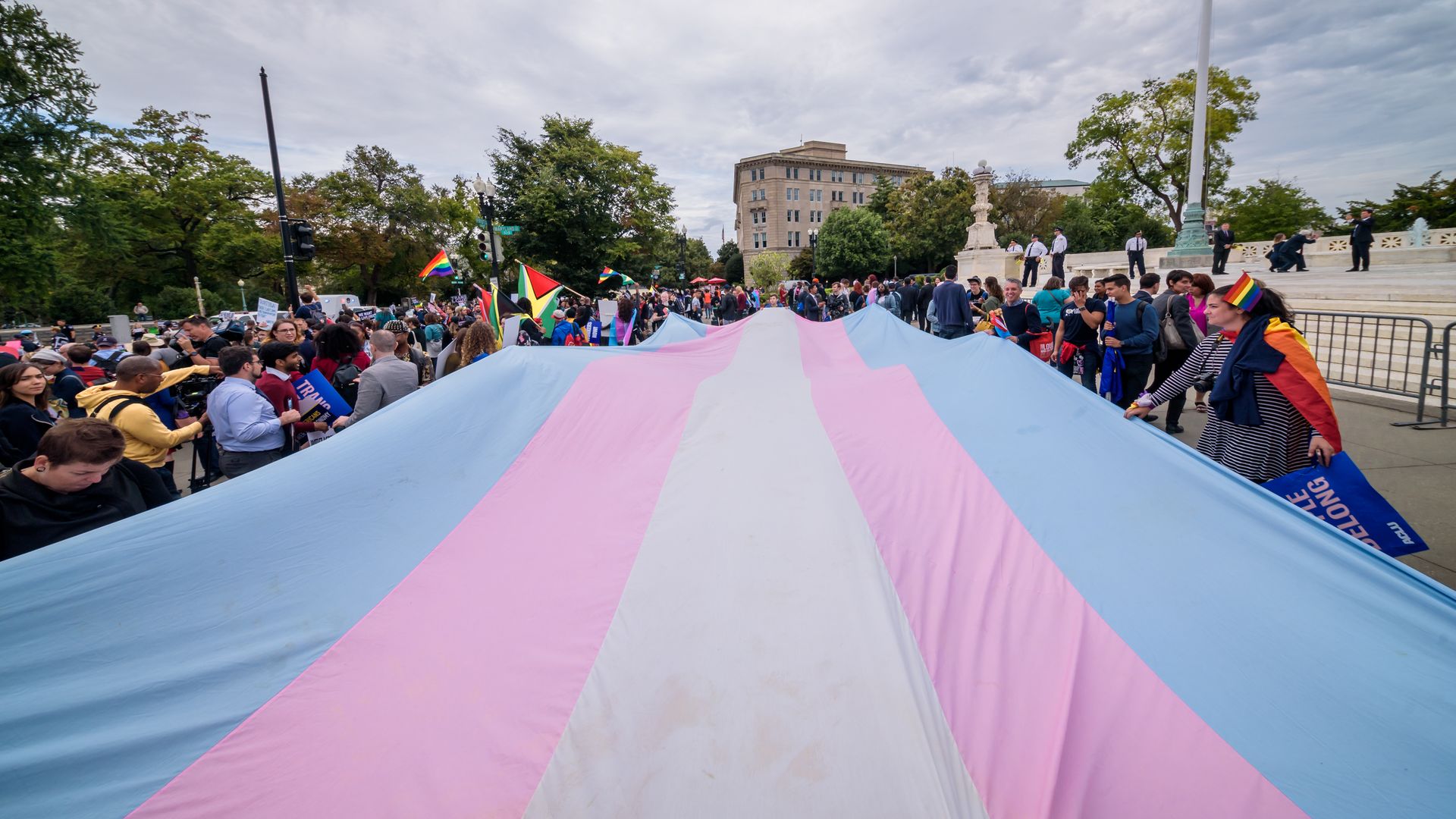14 states would limit the participation of transgender students in athletics
Add Axios as your preferred source to
see more of our stories on Google.

A transgender flag unfurled outside the Supreme Court in 2018. Photo: Erik McGregor/LightRocket via Getty Images
14 state legislatures are considering bills that would limit transgender students' participation in athletics, according to the Human Rights Campaign.
Why it matters: Though legislatures have halted action on the bills because of the coronavirus pandemic and national protests over the death of George Floyd, they may resume consideration in upcoming special sessions.
What they're saying: "It's not over," HRC's state legislative director Cathryn Oakley told Axios. "We don't know what special sessions will hold."
- "If they say, 'You know, we were only in session for a month so consider this a new general session,' I anticipate we'll see these bills pop back up."
- Oakley said she expects that some special sessions will begin in late July.
By the numbers: Oakley said 66 anti-transgender bills have been introduced in state legislatures so far in the legislative session — the most filed in one year. Of those, 25 anti-transgender sports bills are still active.
- The states considering the bills are Alabama, Arizona, Georgia, Idaho, Indiana, Iowa, Louisiana, Missouri, Mississippi, New Hampshire, Ohio, South Carolina, Tennessee and Washington.
Proponents of the bills believe transgender athletes endanger federal funding of women's sports at all levels because trans women may have a biological advantage over competitors.
- Opponents argue the laws, if enacted, would bar students from joining sports and would expose them to invasive tests if their gender is challenged.
The big picture: Idaho Gov. Brad Little (R) signed a bill in March that bans transgender women from competing in all women’s sports teams sponsored by public schools, colleges and universities.
- The American Civil Liberties Union filed a suit against the law, saying it violates the 14th Amendment’s Equal Protection Clause and a student's Fourth Amendment protections against invasions of privacy.
- Attorney General William Barr backed the bill in a statement on the lawsuit, saying the Constitution does not require Idaho to provide the "special treatment … under which biological males are allowed to compete against biological females if and only if the biological males are transgender."
Go deeper: HHS rolls back Obama-era transgender health care protections
